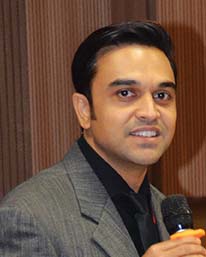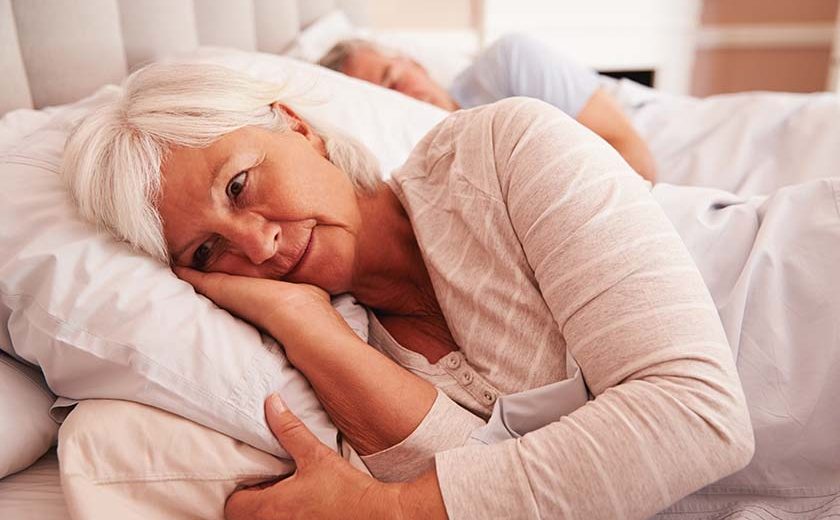Sleep is one of the most crucial aspects of our life. It’s a physiological process. It must be satisfied both qualitatively and quantitatively. Sleep is indispensable as a healthy diet or exercise.
Sleep disorders, however, such as insomnia are quite common especially in old age. Read on to learn more about sleeping disorders during old age.
Are you 60 years old and above with these symptoms?
Nightmares, fidgets at night, shutting eyes doesn’t get you to sleep, struggles to stop thinking, able to sleep during the day but not at night or do you sometimes feel like you forget to breathe while sleeping at night? If you answered yes to these symptoms, you should start looking into your sleeping patterns and routine.
Lack of sleep may have huge detrimental effects on health and it may affect blood pressure, respiratory rate and may even cause palpitation among the elderly.
It may lead to mental blocks, irrational thinking, persistent agony, tiredness, clumsiness, fatigue, agitation, frequent conflict, frustration and forgetfulness.
A maladroit, uncanny sleepless night can even increase the chances of vertigo. In clinical conditions such as stroke, sleeping in odd and uncomfortable positions may lead to complications such as bed sore and contractures. Please do not ignore snoring, as issues such as obstructive sleep apnea must be addressed appropriately.
Wrinkles and sagging skin are inevitable with ageing and is more evident among insomniac elderly. Sleep droughts leaves us charmless and shuns away the glow from the face; therefore we must sleep well.
Older people with the following diseases may have issues with sleep:
- Patients with terminal illness
- Respiratory issues such as asthma, bronchitis and etc
- Women with urinary incontinence, menopause and etc
- Psychiatric illness such as anxiety, depression and etc
- Metabolic disorders such as obesity, gastric ulcer and etc
- Neurological issues such as sciatica, migraine,stroke and etc
- Musculoskeletal issues such as low back pain, arthritis and etc
Diagnosis
Scales such as the Athens insomnia scale, Pittsburg Insomnia rating scale and etc. can help in making a diagnosis. Wrist actigraphy has also been used while for sleep studies, polysomnography has been considered as the gold standard.
Sleep Medicine specialists and family physicians will play the most important role in diagnosing and managing patients with sleep disorders. Prescribed drugs and appliances such as CPAP and BIPAP may also benefit. Dental surgeons might also be helpful. In this fast and ever changing world, the role of a psychiatrist and psychologist can’t be undermined. Cognitive behavioural therapy has also been corroborated.
But these aspects are beyond the scope of this article and the intent of writing this article is to shed light on possible attributing factors and role of physiotherapy.
- Hydrotherapy: Exercise in water can help promote relaxation.
- Sava / Still position: Training to lie down may also make you comfortable and may induce sleep.
- Laura Mitchell: Physiological relaxation method: It may abet you to move away from tension.
- Jacobson progressive relaxation technique: By gradually contracting and relaxing muscle, these techniques may reduce stress and tension physiologically.
- Respiratory physiotherapy: Techniques such as diaphragmatic, innocenti and Buteyko breathing technique may help the elderly by reliving respiratory distress and strain over the use of accessory muscles of respiration. For example: Sternocleido mastoid and Trapezius.
- Positioning and Bed: Sleeping over hard mattress or a sophisticated bed is quite subjective. Using pillows and bolsters may provide comfort but you should be conscious as it may eventually lead to poor posture.
A physiotherapist can also guide you on various sleeping positions after suffering with cerebellar stroke etc. (paralysis – to prevent abnormal tone), Parkinson’s disease or after a surgical procedure to prevent an abnormal posture.Alpha or Stryker frame may be helpful to comfort and prevent issues of bed sore.
Post- operative procedures need a follow-up of guided and specific sleeping positions for example for those with cerebral stroke, prolapsed intervertebral disc and cardiothoracic surgery.
- A number of corroborated evidence also shows effect of exercises in management of sleep disorders for example:
– Iuliana Hartescu et al (2015) found that increased physical activity improves sleep and mood outcomes in inactive people with insomnia.
– Xuewen Wang et al (2014) suggested that a single session of moderate-intensity aerobic exercise in older women can change sleep quality.
– Yang PYetal (2012) concluded that physical exercise could be an alternative or complementary approach to existing therapies for sleep problems. - Massages: Relaxes tensed muscles and reduces associated stress and anxiety.
- Passive movements: Rhythmic movement of limbs may bring general relaxation.
- Cardiovascular fitness: By improving CVS fitness, it may improve sleep quality.
Few suggestions to Sleep Better!
- Contemplation may work for few.
- Meditation: Calms you down by relaxing.
- Traditional rituals: Washing feet before sleep.
- Clothing: A comfortably fit cotton fabric cloth and bed sheet may be comfortable.
- Naps for a short period of time have been considered a way to compensate sleep deprivation by some.
- Sleep diary: Discipline is the key and details about waking up, sleep time details may help you to keep track and give a feedback.
- Diet: Properly planned and structured diet may help the patient’s acidity, gastric reflux and regurgitation related disorders. Caffeinated drinks: Coffee, tea should be avoided around late afternoon and onwards.
- Artistic maneuvers: Sketching, playing a musical instrument can help you to get composed and stay focus.
- Room temperature: Optimum temperature, weather (air conditioner or room heater).
- Technology: Avoid using smartphones, laptop and other sophisticated gadgets at night as they may keep you awake for a long time.
- Fragrance: A pleasant room freshener may work well. Also don’t forget that body odour may become an issue for others.
- Environment: Silent, relatively dark rooms (Don’t forget to keep a night lamp in close vicinity to prevent fall and associated injuries)may facilitate sleep for most of us except those who appreciate light instrumental music and the sounds from the television.
References
https://sleepfoundation.org/
www.csp.org.uk/sites/files/csp/secure/pogp-mitchell-2_0.pdf
Golub, R. M. (2012). “Insomnia”. JAMA. 307 (24): 2653–2653. DOI:10.1001/jama.2012.6219. PMID 22735439.
M. Dena Gardiner, (2005), The Principles of Exercise Therapy (Fourth Edition), Published by CBS Publishers & Distributors Pvt. Lt.
IulianaHartescu et al(2015), in a randomized controlled trial have found increased physical activity improves sleep & mood outcomes in inactive people with insomnia.Volume 24, Issue 5, October 2015, Pages 526–534
Xuewen Wang et al (2014),Sleep quality improved following a single session of moderate-intensity aerobic exercise in older women: Results from a pilot study, Journal of Sport and Health Science, Volume 3, Issue 4, December 2014, Pages 338-342
Yang, Pei-Yu et al. (2012), Exercise training improves sleep quality in middle-aged and older adults with sleep problems: a systematic reviewJournal of Physiotherapy , Volume 58 , Issue 3 , 157 – 163
Disclaimer:
This article has been prepared on the basis of various scientific literatures, stories narrated by old age people, own experiences and may not be universally accepted. You must consult your family physician/ Sleep Medicine specialist/ Physiotherapist and/or family members before making any changes to your sleeping routine. We are not to be held accountable or liable for the decisions you make purely based on this information.
 The author wishes to convey sincere thanks to Dr Jeban Daniel – Principal – Choithram College of Physiotherapy – Indore – M.P. – India for his valuable ideas and abstraction/contribution.This article was written by Universiti Tunku Abdul Rahman (UTAR) Physiotherapy Department Lecturer, Tarun Amalnerkar. Tarun has a B.P.T., M.P.T. (Neurology) from India and can be contacted at tarun.amalnerkar@gmail.com
The author wishes to convey sincere thanks to Dr Jeban Daniel – Principal – Choithram College of Physiotherapy – Indore – M.P. – India for his valuable ideas and abstraction/contribution.This article was written by Universiti Tunku Abdul Rahman (UTAR) Physiotherapy Department Lecturer, Tarun Amalnerkar. Tarun has a B.P.T., M.P.T. (Neurology) from India and can be contacted at tarun.amalnerkar@gmail.com


